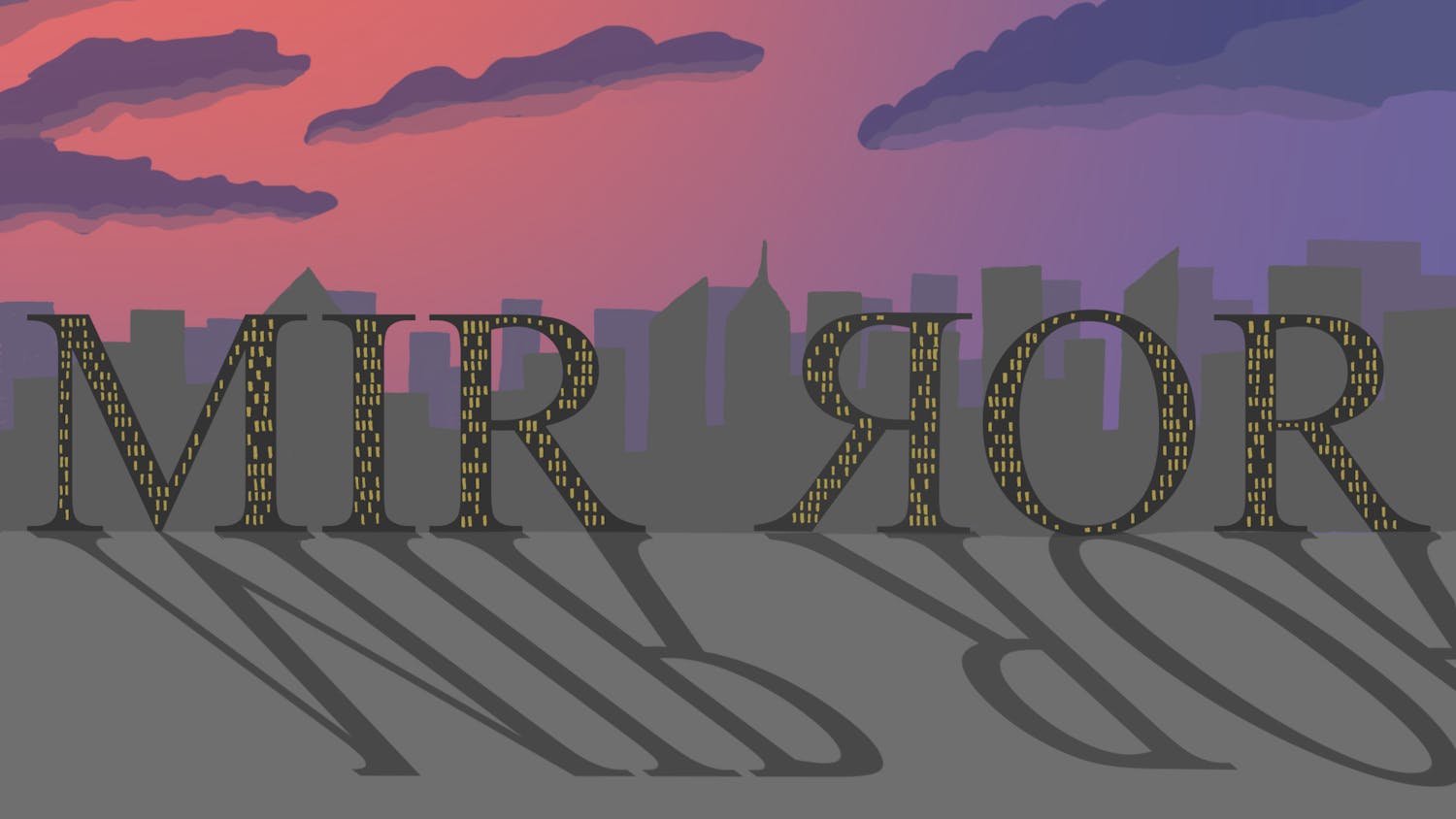Dartmouth students are notoriously overbooked. A 10 p.m. group project meeting is the norm and our iCals are visually pleasing just based on the sheer number of color-coded activities. It's like one of those cherry-flavored candy canes that always pop up around Christmas, even though it's really just a written representation of all the things that keep us running from one end of campus to another, day after day, term after term. But just because our schedules are relatively frantic doesn't mean the way we handle them has to be. Theoretically, our approach to scheduling and extracurriculars should fall into two categories: the oft-repeated Type A or Type B.
Wikipedia (a pretty Type A organization itself) says that Type As are "high-strung" compared to "laidback" Type Bs. Though there is no proof of a causal link, this terminology originated in the 1950s, when doctors Meyer Friedman and Ray Rosenman postulated that Type A individuals are more prone to developing coronary heart disease. All our control freaks out there don't worry, later research disproved their hypothesis. At their worst, Type As may be aggressive and cutthroat, while Type Bs run toward inefficiency and laziness. Does this make one better than the other for performing under stress and time constraints here at Dartmouth? Should we attack the challenges we face, academically and personally, or should we adopt a "que sera sera" attitude to avoid a meltdown?
In the past couple of decades, the whole Type A/Type B debate has proved that it has staying power in popular psychology. While some are eager to see themselves in a certain light, others take offense when classified as one type or the other, hesitant to come off as overly uptight or apathetic. Many people may avoid such general classifications due to the "stigma of abrasiveness or passiveness" associated with each personality type, according to Brendan Murphy '14.
Even so, Type A individuals' organizational skills tend to produce more positive outcomes, Murphy said.
"With more structure in their lives, I think Type A people are more proactive in balancing their schedules," he said. "Naturally, that could be a factor leading to greater success."
Some, however, feel that the Type A lifestyle is more suited to the college-oriented grind of high school. Being forcibly organized and accomplished is more of a relic from the times when seven-hour-long school days and 8 a.m. start times were the norm, a time that the average Dartmouth student has happily left in the distant past. For some, it seems as if Type A personalities result from this collective, obsessive drive to get into college, but all of those abilities and qualities we once intensely labored over are abandoned and replaced with a more casual lifestyle, according to Alexandra Savage '15.
"I work more sporadically depending on my classes," Savage said. "Unlike high school, my workload changes throughout the term. At college I am more laidback. This approach works best for me as I feel I have more time to complete my work and spend more hours fully understanding the material."
Regardless of your preference, Type B students may often feel like the minority in the academic stew that is Dartmouth, where a passion for perfection is the main ingredient. While it is intimidating to think that our fellow classmates consist of valedictorians galore, Rubik's Cube champions and concert timpanists, we cannot help but regard many of these accomplishments as mere resume boosters. Take a poll and see how many people still participate in all of their high school endeavors we're pretty sure the results will be disappointing.
Regardless of whether this is true, the vast majority of Dartmouth students will replace their high school commitments with other time-consuming pursuits once they get to Hanover. Sometimes the Type A multitasking capacity they perfected during years of best friendship with the College Board website is an important carry-over.
Jennifer Armstrong '13 said she recognized that while success in the chaotic real world requires more of a healthy, balanced personality, Type A individuals thrive in a structured college environment like Dartmouth.
"I would assume that most people here are Type A," Armstrong said. "Things tend to pile up really quickly at Dartmouth, and the ability to control your environment is very advantageous, especially when everybody else is so ambitious and successful."
Sure enough, the reality is that we go to an Ivy League university, and we go to great lengths to act like we're not fazed by the fact that sheer talent will no longer pull us through. People always complain about crazy, aggressive freshmen in introductory classes, but we often forget that we were once (and sometimes still are) these freshmen. We were eager and hyper-competitive qualities that fade into acceptance and complacency as we come to terms with the reality that we can't always be number one.
Type A individuals' more "outgoing and personable" dispositions sometimes pair with their proactive natures when it comes to seeking out opportunities, according to Alex Libre '16. These qualities give them an edge in "a culture where everyone is really successful and skilled in different ways," Libre said.
Some students, however, tackled high school from different angles, and needed to adapt their study habits to a college environment, according to Carter Glatt '15.
"In high school I was the laidback and casual student, trying to do as little work as possible and hoping to do well," Glatt said. "At college, my habits had to change because I didn't have my parents here to push me and keep me going forward."
Show us the person that got somewhere meaningful while bundled up in bed watching "Breaking Bad" or "Grey's Anatomy," and we'll show you someone that's as questionable as Manti Te'o's dead Twitter girlfriend. The reality at Dartmouth and the world beyond is that every step requires hard work, diligence, consistency and commitment.
Nevertheless, we clearly can't be on our A-game in all aspects of our lives. Each of us is ambitious in our own areas whether it is in athletics, academics, social life or whatever extracurricular activities we choose to pursue.
"People assume that if someone is super social and they go out all the time, they can't be Type A," Armstrong said. "But I think you could even approach social life in an organized way, for example, if you're always out only on certain days of the week."
Evidently, there are many gray areas when it comes to defining Type A or Type B behavior. What's most important is that we recognize that, extraordinary talent aside, how hard we work is a direct measure of how well we tend to perform.
Ultimately, what it comes down to is a matter of fight or flight. How hard we're willing to try tells us what's really worth committing to. Type A individuals may come off as manic and obsessive compulsive, but what it truly indicates is passion and commitment. We may pretend that we're just a bunch of "frat stars" who are too cool for school, but wherever your interests may lie, you'll find that those who are willing to go the extra mile are the ones who make it to the high ground.
For starters, put some effort into figuring out what it is you want (besides better dining options, of course). After all, if you only live once, we're sure EBAs and excessive liver damage won't serve you as well as you'd like.
As for us, we'll just take this one step at a time, and see how much we can aggressively pursue from the warmth of our down comforters and pillow pets.



